 http://jmvidal.cse.sc.edu/netlogomas/distributedrec.html [3]
http://jmvidal.cse.sc.edu/netlogomas/distributedrec.html [3]
| $D$ | set of documents, $d \in D$ |
| $A$ | set of agents, $i \in A$ |
| $L_i(d)$ | a proposition that is true if $i$ likes $d$ |
| $R_i(d)$ | a proposition that is true if $i$ has read $d$ |
| $P_r$ | the payoff for reading a liked document. |
| $C_r$ | the cost of reading a document. |
| $C_m$ | the cost of sending a message. |
| Nothing | Send | |
| Nothing | 0,0 | $x_i(j), -C_m$ |
| Send | $-C_m, x_j(i)$ | $x_i(j)-C_m, x_j(i)-C_m$ |
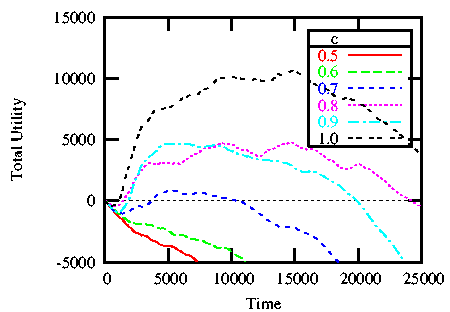
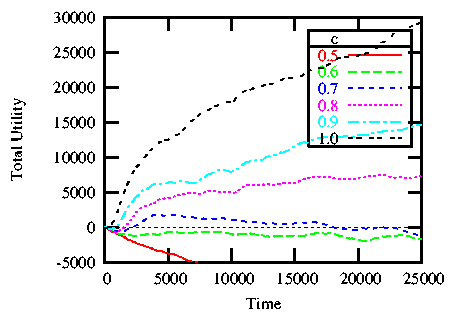
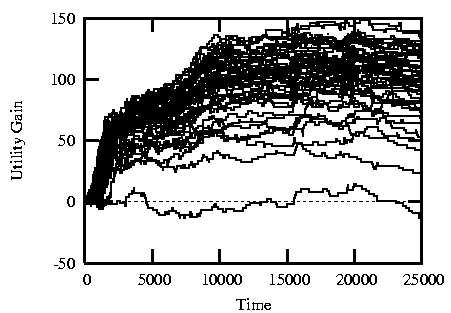
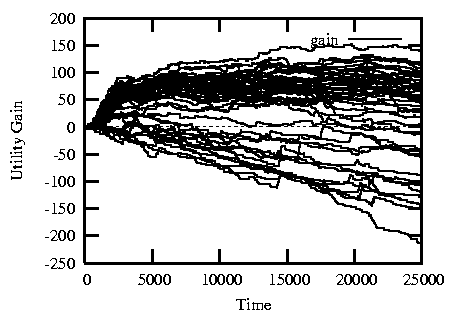
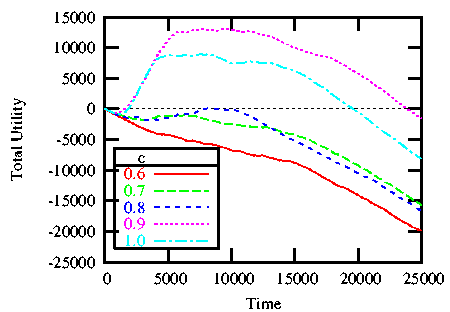
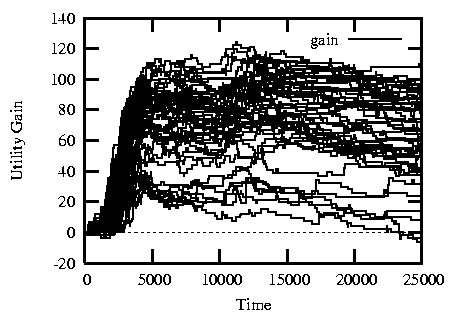
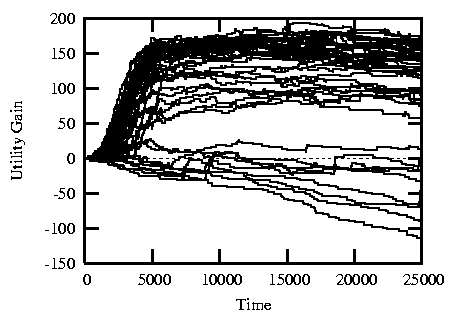
This talk available at http://jmvidal.cse.sc.edu/talks/distrecmodel/
Copyright © 2009 José M. Vidal
.
All rights reserved.
20 June 2003, 05:14PM